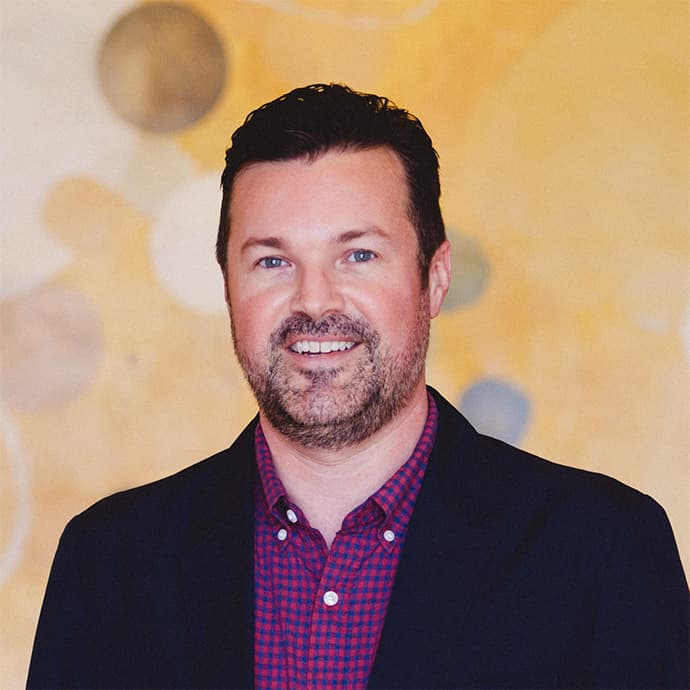What You Should Know About Quitting PCP



Kaitlyn Motley is the Mental Health and Substance Use Services Director at the Texas Council for Community Centers. She has an M.P.A. in Social Policy Management and an M.A. in Clinical Psychology.

Dr. Scot Thomas received his medical degree from the University of California, San Diego School of Medicine. During his medical studies, Dr. Thomas saw firsthand the multitude of lives impacted by struggles with substance abuse and addiction, motivating him to seek a clinical psychiatry preceptorship at the San Diego VA Hospital’s Inpatient Alcohol and Drug Treatment Program.




Kaitlyn Motley is the Mental Health and Substance Use Services Director at the Texas Council for Community Centers. She has an M.P.A. in Social Policy Management and an M.A. in Clinical Psychology.

Dr. Scot Thomas received his medical degree from the University of California, San Diego School of Medicine. During his medical studies, Dr. Thomas saw firsthand the multitude of lives impacted by struggles with substance abuse and addiction, motivating him to seek a clinical psychiatry preceptorship at the San Diego VA Hospital’s Inpatient Alcohol and Drug Treatment Program.
Quitting any drug takes courage and patience. Recognizing the problem and taking the steps to quit phencyclidine, also known as PCP, can be difficult. But it’s definitely possible with the right treatment and support.
Benefits of Quitting PCP
PCP use can lead to serious physical and emotional consequences, including speech problems, memory loss, weight loss, and depression.6 The drug causes some users to become violent, which can affect relationships and even lead to encounters with law enforcement. It can also affect growth, development, and learning in young people.7
Some benefits of quitting PCP include improvements in:
- Daily life: When you’re no longer under the influence of PCP, you can perform better at home, at work and at school. Your grades may improve and your absences may decrease, and you may experience increased interest in other activities.
- Relationships: Relationships with family and friends often suffer when someone is addicted to drugs. Sometimes those addicted to PCP isolate themselves. Quitting PCP and spending time with people who abstain from drugs can improve those relationships and your overall wellbeing.
- Overall health: PCP abuse can damage your health. Quitting can halt the effects of using and, in some instances, even reverse them, leading to a better lifestyle.
- Finances: Regular use of PCP can put a drain on your finances. Quitting will allow you to save money, which you can then spend on healthier endeavors.
PCP Addiction Treatment Center and Recovery Program Options
Quitting PCP isn’t easy, and you may experience withdrawal symptoms that require clinical supervision or medical attention. Withdrawal symptoms can also include cravings that can lead to relapse without professional support.6
Treatment centers make quitting less difficult by providing recovery support throughout the process. Anyone who wants to quit PCP should consider a treatment program versus quitting on their own. Research has shown that effective treatment programs can reduce the likelihood of relapse.1
Types of PCP Recovery Centers
A variety of treatment options exist, and the one that’s right for you will depend on a variety of factors, such as the severity of your addiction. Talk to your healthcare provider about the benefits of each to determine which is the right fit for your needs.
Most programs use counseling or talk therapy. Counseling and therapy can help you change attitudes and behaviors associated with drug use. The goal is to increase healthy behaviors and improve daily life skills.
Treatment can be provided in a variety of settings:2
- Inpatient therapy is an intensive treatment program often provided in a residential or hospital setting with 24-hour medical supervision. This type of program is recommended for those with severe addictions who need continuous care and support during their recovery process.
- Outpatient treatment includes a variety of options, such as individual and group counseling. It allows you to live at home during treatment. This form of treatment is recommended for those with less severe forms of addiction.
- 12-step programs, such as Alcoholics Anonymous, bring together groups of people with similar addiction struggles in order to form meaningful social bonds and build community support networks.
A variety of healthcare professionals may be involved in your recovery, including doctors, nurses, therapists, and social workers. These professionals often work as a team, offering a holistic approach to the treatment program.2
Medications for Quitting PCP
No federally approved medications exist for the treatment of PCP addiction. 3 But some medications may be used to address the underlying causes of addiction, such as depression or anxiety.2 Medications can also help alleviate symptoms experienced during detox.1
Your healthcare provider can discuss these options with you.
Treatment Process
Most treatment programs will include steps to help each person through the recovery process. The first step is the detox stage, which involves getting the drug out of the system. This allows the body to fully rid itself of the effect of the drug so that the person can fully integrate into treatment and get the most benefit from it.
The next steps in treatment include: 1
- Behavioral counseling. Counseling can take place in an individual or in a group setting. Common behavioral therapies used in addiction treatment include cognitive behavioral therapy, contingency management, and motivational interviewing. These therapies help the user to learn how to deal with triggers, modify maladaptive thought and behavioral patters, and find the motivation to engage in a recovery program.
- Medication assistance, monitoring, and compliance, if necessary. Some people have medical complications due to their PCP use as well as general health problems that require attention during treatment.
- Evaluation and treatment of co-occurring disorders. Many people who abuse PCP have a co-occurring mental health or behavioral disorder, which is known as dual diagnosis. They also frequently abuse other drugs.
- Long-term follow-up and aftercare. The staff at the treatment center will work with you on a plan for receiving follow-up care once you complete your initial treatment.
Each of these steps will be tailored to your unique needs to ensure success and to prevent relapse.
Continuing Recovery in Aftercare
Your treatment should include an aftercare plan, which is typically created with the help of a case manager, therapist or another staff member from your program. This plan should include a formal contract between the person in recovery and his or her family and/or significant other, stating that the individual will work toward all aspects of the established treatment goals. It should set out consequences if the person fails to meet those goals.4
An aftercare plan will usually include options for ongoing care post-rehab, including:
- Individual therapy.
- Community or family-based supports.
- Sober living arrangements.
- 12-Step programs.
PCP Withdrawal Symptoms and Side Effects
PCP is addictive, so it can cause withdrawal symptoms when you quit. Sometimes withdrawal symptoms can include extreme cravings that make it harder to avoid using again, which can lead to relapse.6 The symptoms you experience will depend on the duration of your addiction, the amount of the drug used, your physiology, and other factors.
PCP withdrawal symptoms can be both physical and psychological.
Physical reactions may include:
- Increased muscle tone.
- Rhabdomyolysis, or muscle breakdown.
- Sleeplessness.
- Weight loss.
- Increased body temperature.
- Seizures.
Psychological reactions may include:
- Feelings of fear, unease, and worry.
- Feelings of depression and other mood disorders.
- Feeling excited, tense, confused, restless, or irritable.
- Having hallucinations.3,8
PCP withdrawal symptoms can be serious and may require medical attention. Medical supervision is strongly recommended for detoxification from PCP. Treatment centers have the necessary experience and staff on hand to ensure a safe and effective withdrawal process. They can provide monitoring and support, making it easier to avoid more serious symptoms and relapse.2,5
Tips for Quitting
Quitting any drug is very difficult to do alone, and you don’t have to do it by yourself. Treatment centers can provide the clinical supervision necessary to ensure a successful recovery. Surrounding yourself with friends and family can also provide emotional support that can be invaluable in your recovery process.
Seek guidance from a healthcare professional when you are ready to quit. Work with the professional to identify the best treatment option for you. Each treatment option comes with its own benefits, and each is individualized to ensure the best treatment for every person.
Here are a few other tips to help you quit:3
- Be sure to attend all treatment sessions and listen to your healthcare provider.
- Find new activities and interests to replace drug abuse.
- Exercise and eat well. Research has shown that a healthy lifestyle can reduce the urge to abuse drugs and increase overall wellbeing. 3
- Avoid triggers. These are things that make you experience an urge to use the drug again. A trigger can be a person, thing, place or memory – anything you associate with the drug or that is stressful and causes you to want to escape those feelings.5
Address the Underlying Issue
Addictions do not exist in a vacuum. More often than not, they are the result of some underlying issue, such as:
- Depression or another mood disorder.
- A life event.
- The social environment, which could include unsupportive friends, family problems, or housing issues.
It is important to address the reasons why you started using in the first place. You should try to identify all of the issues that led to your addiction, as well as those triggers or things in your life that cause you distress and might lead to relapse.
Learn to Live Without Drugs
You will have to relearn certain things in your daily life when you quit taking PCP, such as:
- How to live without drugs, including coping with stress and taking care of responsibilities such as school and work.
- How to effectively work on the problems that abusing drugs has caused in your life, such as difficulties with relationships, jobs and finances.
- How to say no and to avoid people who still abuse drugs.
Having the right people in your life – supportive, drug-free family and friends – can help make relearning these things much easier.
Find Treatment Centers for PCP Recovery
Quitting PCP can be challenging, but you don’t have to do it alone. Recovery.com makes it easy to find top medical detox centers in the US, inpatient addiction treatment facilities, aftercare options, and more to start on the path to recovery. You can search for rehab by insurance carrier, location, amenities, and more for free. Don’t wait. Get help today.
FAQs
-
[1]. National Institute on Drug Abuse. (2016). DrugFacts: Treatment approaches for drug addiction. https://www.drugabuse.gov/publications/drugfacts/treatment-approaches-drug-addiction
-
[2]. National Institute on Drug Abuse. (2016). What to do if you have a problem with drugs: For adults. https://www.drugabuse.gov/related-topics/treatment/what-to-do-if-you-have-problem-drugs-adults
-
[3]. U.S. National Library of Medicine. (2014). MedlinePlus, Substance use – phencyclidine (PCP). https://medlineplus.gov/ency/patientinstructions/000797.htm
-
[5]. National Institute on Drug Abuse. (n.d.). Why is it so hard to quit drugs?. https://easyread.drugabuse.gov/content/why-it-so-hard-quit-drugs
-
[6]. National Institute on Drug Abuse. (2016). DrugFacts: Hallucinogens. https://www.drugabuse.gov/publications/drugfacts/hallucinogens
Our Promise
How Is Recovery.com Different?
We believe everyone deserves access to accurate, unbiased information about mental health and recovery. That’s why we have a comprehensive set of treatment providers and don't charge for inclusion. Any center that meets our criteria can list for free. We do not and have never accepted fees for referring someone to a particular center. Providers who advertise with us must be verified by our Research Team and we clearly mark their status as advertisers.
Our goal is to help you choose the best path for your recovery. That begins with information you can trust.










